Braces in Israel
Search and Compare the Best Clinics and Doctors at the Lowest Prices for Braces in Israel
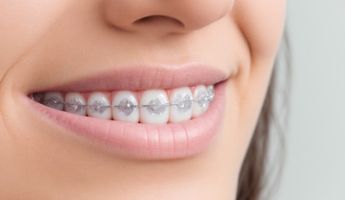
Find the best clinics for Braces in Israel
No pricing info available
Vietnam offers the best prices Worldwide
Price: $ 1
From 122 verified reviews
fadi hreaz, 27 August 2020
Hospital gives reasonable treatment but poor sorting
Udental, located in Arison New Hospitalization Building, Tel Aviv, Israel offers patients Braces procedures among its total of 38 available procedures, across 2 different specialties. Currently, there's no pricing information for Braces procedures at Udental, as all prices are available on request only. All procedures and treatments are undertaken by the lead specialist at the Dental, and they have multiple recognized accreditations, including: CQC - Care Quality CommissionGDC - General Dental CouncilCQC - Care Quality CommissionMDU - Medical Defence UnionBACD - British Academy of Cosmetic DentistryAccreditation Programme of Health OrganizationBDA - British Dental AssociationGDC - General Dental CouncilADI - Association of Dental ImplantologyBSDHT - British Society of Dental Hygiene and TherapyBACD - British Academy of Cosmetic DentistryMDU - Medical Defence UnionInvisalign ProviderBSOI - British Society of Oral ImplantologyBDA - British Dental Association Practice Scheme Gold MemberBSOI - British Society of Oral ImplantologyBDA - British Dental AssociationADI - Association of Dental ImplantologyBSOS - British Society of Occlusal StudiesBSOS - British Society of Occlusal StudiesBSDHT - British Society of Dental Hygiene and Therapy
Dr. Ratner's Dental Clinic, located in Arison New Hospitalization Building, Tel Aviv, Israel offers patients Braces procedures among its total of 55 available procedures, across 2 different specialties. Currently, there's no pricing information for Braces procedures at Dr. Ratner's Dental Clinic, as all prices are available on request only. All procedures and treatments are undertaken by the lead specialist at the Dental, and they are not accredited by any recognized accreditations institutes
DenTech Cares Your Advanced Dental Clinic, located in Ramat Yam St, Herzliya, Israel offers patients Braces procedures among its total of 36 available procedures, across 2 different specialties. Currently, there's no pricing information for Braces procedures at DenTech Cares Your Advanced Dental Clinic, as all prices are available on request only. All procedures and treatments are undertaken by the lead specialist at the Dental, and they are not accredited by any recognized accreditations institutes
Health Tour, located in Ramat Yam St, Herzliya, Israel offers patients Braces procedures among its total of 105 available procedures, across 21 different specialties. Currently, there's no pricing information for Braces procedures at Health Tour, as all prices are available on request only. All procedures and treatments are undertaken by the lead specialist at the Hospital, and they have multiple recognized accreditations, including: Accreditation Programme of Health OrganizationISPS - The Israel Society of Plastic Surgeons
- Home
- Israel
Compare Before & After Photos of _procedure_photos.phpBraces
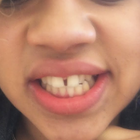
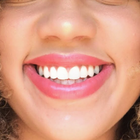
Front view
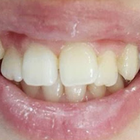
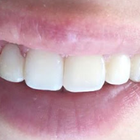
Front view
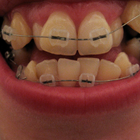
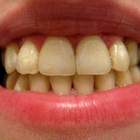
Front view
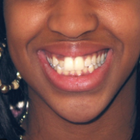
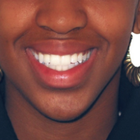
Front view
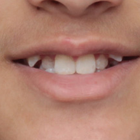
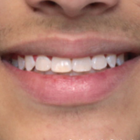
Front view
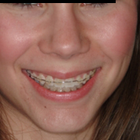
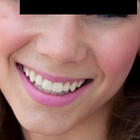
Front view
WHY US?
At Medijump, we're making medical easy. You can search, compare, discuss, and book your medical all in one place. We open the door to the best medical providers worldwide, saving you time and energy along the way, and it's all for FREE, no hidden fees, and no price markups guaranteed. So what are you waiting for?

Free

Best Price

Widest Selection

Risk-Free
What do you need to know about Braces in Israel?
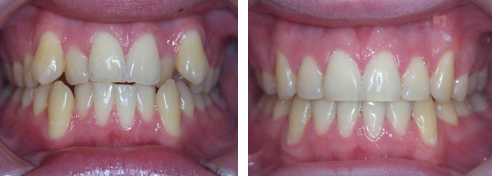
The Braces, commonly referred to as braces, is a mainstream dental technique designed to correct and align a person's dentition. Beneficial for both aesthetic and health reasons, the process involves repositioning misaligned teeth to improve your oral health and overall appearance. Aesthetic benefits aside, the Braces in Israel also assists in enhancing oral hygiene, reducing discomfort when chewing, and even helping in speech correction in certain scenarios.
A thorough understanding of the Braces requires patient awareness regarding the longevity and complexity of the procedure. The dentist assesses the oral condition of an individual and plans a custom treatment accordingly. The treatment is usually achieved through subsequent periodic modifications that help guide teeth to their correct position over time. Your dentist unwaveringly monitors the Braces process, ensuring progress, and addressing any potential complications promptly.
There are several types of braces, including:
- Metal braces –are the traditional braces that come to mind for most people. Metal braces are made of metal brackets and an archwire is used to put pressure on your teeth and jawline, and O-rings are used to connect the brackets and the archwire.
- Ceramic braces – these are the same shape and size of metal braces. However, they are tooth-colored or clear, so they blend in with your teeth.
- Lingual braces – this type of braces are essentially the same as traditional metal braces, except that the wires and brackets are placed on the inside of your teeth.
- Clear aligners – mostly known as Invisalign (the most popular brand of clear aligners), these are removable, clear braces. This type of braces is best for people who only need minor corrections.
Braces are usually used during adolescence. However, more and more people are getting them later on in life.
What is the cost of Braces in Israel?
The cost of Braces or braces in Israel can vary based on a range of factors. These can include the specific type of braces chosen, the severity of the case, the expected duration of the treatment, and the dentist's experience and expertise. The costs can also be influenced by the geographical location. For example, the pricing for this dental intervention could be influenced by the local cost of living and local healthcare standards.
Apart from these specifics, your insurance coverage can also impact the final cost of the treatment. It's vital to verify with your insurance provider if orthodontic treatments like the Braces are covered in your plan and to what extent. Some plans cover only a portion of the treatment, while others may cover more. Speaking with your dentist about costs and payment plans is recommended for a smooth, transparent, and stress-free treatment experience
What does a Braces Procedure Involve?
The Braces involves multiple stages which start with an initial consultation at an accredited clinic to assess the dental needs and the approaches applicable to the case. The first step typically involves a meticulous examination, including an X-ray of your dentition to gain a complete understanding of your oral structure.
Subsequent to the initial consultation, the dentist crafts a specialized plan that outlines the sequence for the Braces. Once the plan is finalized and consented by the patient, implementation begins. The chosen type of braces are put on, which is a process that can last for a few hours. Post-installation, periodic adjustments at regular intervals are crucial to guide the teeth to the desired position gradually.
How Long Should I Stay in Israel for a Braces?
As the Braces involves separate steps over an extended period, individual visits to your dentist or orthodontist are usually brief. Most patients can expect their initial fitting to take around one to two hours, with follow-up adjustment visits usually taking around 15 to 30 minutes.
While the procedure does not require any hospital stay and has minimal impact on your daily activities, it's crucial to note that a full Braces or braces treatment can often last between 18 to 24 months. Therefore, any decision to relocate during the treatment period should be carefully considered.
What's the Recovery Time for Braces in Israel?
The concept of 'recovery time' for the Braces differs from other medical procedures. After your braces have been fitted or adjusted, you may experience general discomfort or difficulty in eating solid food. Usually, this discomfort subsides in about a week.
Contrarily, the overall process of correcting dental alignment using braces isn't quick. Depending on factors such as age, dental condition, and the extent of alignment required, the entire process may last anywhere from 1 to 3 years. As progress varies from case to case, it's best to discuss this with your healthcare provider to understand the timeline for your unique situation.
What's the Success Rate of Braces in Israel?
The Braces enjoys a remarkable success rate. With high patient satisfaction levels reported worldwide, the process has helped many to achieve a desirable and healthier smile. The success of a Braces differs from case to case and depends on the patient's dental condition, age, and the type of braces used.
Another crucial factor that significantly influences the success of the Braces is patient compliance. Adherence to the guidelines provided by the orthodontist, including diligent oral hygiene, attending follow-up appointments, and ensuring regular adjustments are a few ways to optimize treatment outcomes and experience long-term success.
Are there Alternatives to *Treatment Procedure* in Israel?
Yes, there available alternatives to the Braces in Israel. Invisalign, for instance, is a modern orthodontic treatment that, unlike traditional metal braces, uses clear, removable aligners custom-fitted to your teeth. This alternative has grown popular due to its near-invisible appearance, making the treatment less noticeable.
Another alternative is the lingual braces; these are essentially similar to traditional braces but are placed on the inward-facing side of your teeth, making them less visible when you speak or smile. Dental surgery is a more drastic option, usually considered only in extreme cases when orthodontic treatments alone may not be sufficient.
It's important to discuss these alternatives with your dentist and consider all aspects such as costs, duration, maintenance, and visual appearance before deciding on the most suitable option for you.
What Should You Expect Before and After the Braces?
WebMD, could be a few years or indefinitely. Many patients have reported heightened self-confidence and improved oral health, making the Braces a worthy investment, which has made a mark in the field of Health and wellness.
What are some potential complications of the Braces in Israel?
While the Braces is generally safe, like any dental procedure, there can be potential complications such as discomfort after adjustment, difficulty in brushing, loss of calcium from the teeth (tooth decalcification), and shortening of tooth roots. Rarely, patients may also experience allergic reactions to some of the metals used in braces.
Difficulty brushing could potentially lead to an accumulation of plaque, leading to gum disease if not adequately managed. As such, engaging in regular oral hygiene practices is of utmost importance. If you notice any of these issues, it is crucial to raise them with your dentist as soon as possible
What is the Importance of Aftercare for Braces?
Aftercare plays a crucial role in the success and longevity of the results of the Braces. Once the braces are removed, you're generally required to wear a retainer, which your dentist will custom-fit for you. A retainer helps in maintaining and stabilizing your teeth in their new position. Neglecting to wear the retainer can lead to your teeth shifting back to their original position, reducing the efficiency of the treatment.
In addition to using a retainer, maintaining good oral hygiene throughout the course of wearing braces and even afterward is necessary. Oral care routines such as brushing your teeth twice a day, flossing regularly, and having routine dental checkups will help ensure the health of your teeth and gums long after the Braces.
A well-nourished diet that limits sugary and starchy foods is recommended to further protect your oral health.
What are the Differences Between Adult and Children's Braces?
When comparing adult and children's braces, the primary distinction is rooted in the biological differences between kids and adults. As children’s jaws are still growing, it may be easier to influence the position and alignment of teeth, making children more responsive to the Braces.
However, with adults, the Braces might take longer as their jaws are already fully developed, and shifting teeth can be more complex. So, while braces are effective at any age, the duration of treatment may differ between adults and children.
Even though the Braces will differ among age groups, the critical point remains that adults, just like children, can still benefit from braces in terms of improved oral health, better dental function and enhanced self confidence, as mentioned by Mayo Clinic.
What are the Different Types of Braces?

There are several types of braces or Braces options available to cater to an array of needs and preferences. Traditional braces are the most popular, consisting of metal brackets that are glued to your teeth and linked with wires. They're now lighter and more flexible, reducing discomfort than previous versions.
Ceramic braces are similar to traditional ones, but they use tooth-colored or clear brackets to merge more naturally with your teeth. Lingual braces are metal braces placed on the inside of your teeth making them less noticeable. Lastly, Invisalign braces are clear, custom-fit removable aligners that are almost invisible, making them very popular among adults and teens who prioritize aesthetics.
It's important to remember that each type of Braces has its pros and cons: while some might be more aesthetically pleasing, others could be more efficient in treating complicated cases. Consulting with your dentist will allow you to make an informed decision based on your unique case.
What Kind of Maintenance Does Braces Require?
Maintenance during the Braces involves maintaining a high level of oral hygiene. Because braces can lodge food particles, frequent and thorough brushing is necessary to prevent plaque build-up leading to tooth decay or gum disease. The use of special brushes and floss can help get to those hard-to-reach places around brackets and wires.
Additionally, periodic appointments with your orthodontist are obligatory to keep track of progression and make necessary adjustments. Furthermore, certain types of food are to be avoided as they can break wires or brackets. These typically include hard or sticky foods like candy, popcorn, and nuts. Your dentist will provide specific guidelines customized to your Braces.
Whilst the information presented here has been accurately sourced and verified by a medical professional for its accuracy, it is still advised to consult with your doctor before pursuing a medical treatment at one of the listed medical providers
No Time?
Tell us what you're looking for and we'll reachout to the top clinics all at once
Enquire Now

Popular Procedures in Israel
Prices Start From $1

Prices Start From $1

Prices Start From $48

Prices Start From $1

Prices Start From $1

Prices Start From $1

Prices Start From $11

Prices Start From $1

Prices Start From $45

Recommended Medical Centers in Israel for Braces

- Interpreter services
- Translation service
- Religious facilities
- Medical records transfer
- Medical travel insurance
- Health insurance coordination
- TV in the room
- Safe in the room
- Phone in the room
- Private rooms for patients available

- Interpreter services
- Translation service
- Religious facilities
- Medical records transfer
- Medical travel insurance
- Health insurance coordination
- TV in the room
- Safe in the room
- Phone in the room
- Private rooms for patients available

- Interpreter services
- Translation service
- Religious facilities
- Medical records transfer
- Medical travel insurance
- Health insurance coordination
- TV in the room
- Safe in the room
- Phone in the room
- Private rooms for patients available

- Interpreter services
- Translation service
- Religious facilities
- Medical records transfer
- Medical travel insurance
- Health insurance coordination
- TV in the room
- Safe in the room
- Phone in the room
- Private rooms for patients available

- Interpreter services
- Translation service
- Religious facilities
- Medical records transfer
- Medical travel insurance
- Health insurance coordination
- TV in the room
- Safe in the room
- Phone in the room
- Private rooms for patients available

- Interpreter services
- Translation service
- Religious facilities
- Medical records transfer
- Medical travel insurance
- Health insurance coordination
- TV in the room
- Safe in the room
- Phone in the room
- Private rooms for patients available

- Interpreter services
- Translation service
- Religious facilities
- Medical records transfer
- Medical travel insurance
- Health insurance coordination
- TV in the room
- Safe in the room
- Phone in the room
- Private rooms for patients available

- Interpreter services
- Translation service
- Religious facilities
- Medical records transfer
- Medical travel insurance
- Health insurance coordination
- TV in the room
- Safe in the room
- Phone in the room
- Private rooms for patients available

- Interpreter services
- Translation service
- Religious facilities
- Medical records transfer
- Medical travel insurance
- Health insurance coordination
- TV in the room
- Safe in the room
- Phone in the room
- Private rooms for patients available
Braces in and around Israel
About Israel
Israel celebrated 70 years of independence in 2018 - in what is a truly ancient land. The world’s only Jewish and democratic state is home to sites sacred to Judaism, Christianity, and Islam. While these holy places are truly unique attractions, there is more to Israel than religious heritage and complex politics. Jerusalem is the official capital and holy city to three world religions, previously mentioned, while Tel Aviv brims with beaches and bustles with urban vitality. Then there’s the Dead Sea and Masada, the stark, stunning Negev, and fertile Galilee. The number of museums and cultural institutions per relative area is larger in Israel than anywhere in the world.
Home to more than 30 JCI accredited facilities, medical tourists visit Israel for a variety of procedures, but particularly dental and tertiary care. Braces procedures are also a popular choice.
Popular Parts of Israel
Israel is an alluring destination for those who want to appreciate its astonishing religious sites, stunning natural beauty, and remarkable historic relics.
- Tel Aviv is the economic and technological center of Israel, with a population of over 400,000; it is the most populous city in the country. Located on the Mediterranean coastline, the city offers sunny beaches for any sun-chaser. The city has impressive architecture and has a modern cosmopolitan landscape. Tel Aviv Museum of Art houses works by international artists. In addition, it has a nonstop nightlife with a huge party option to fit every taste.
- Haifa is the country’s third-largest city and it is one of Israel’s high-technology centers as well as a busy working port. The city may have an industrious image, but with a number of museums, gardens, and shrines, it is an amazing place to travel to. The Baha’i Gardens are possibly the most popular attraction as it is the final resting place of the prophet-herald of the Baha’i Faith. Tourists can have a bird’s eye view from the platform at the top or take a free Panorama Tour.
- Eilat is located at the southernmost tip of Israel and is the only Israeli city on the Red Sea. Families come to the city to have a good time on the beach and party-goers come for its all-night parties. The turquoise waters invite visitors to snorkel, scuba dive, or swim. It is recommended to stay in an Oasis at night to get a chance to stargaze under a clear desert night sky. During the day, visit the Eilat Mountains to have a beautiful view of an ancient desert.
- Tsfat or Safed is a quaint mountain-top city surrounded by pine forests. Located at an elevation of 900 meters, the city enjoys warm summers and cold winters. It is a popular summer holiday resort frequented by Israelis and foreign visitors. Here, tourists will find synagogues, art galleries, and unique crumbling stone houses.
- Jerusalem is one of the oldest cities in the world and three major Abrahamic religions (Judaism, Islam, and Christianity) considered it a holy city. Even though it has been destroyed and rebuilt over thousands of years, the city manages to endure its spiritual magnetism. It is overflowing with holy sites, diversity, and layers of history.
Weather and Climate in Israel
Israel is a year-round destination but the temperatures in the city vary widely. The coastal areas such as Tel Aviv and Haifa experiences a typical Mediterranean climate where the winters are rainy and the summers are hot. The area around Northern Negev has a semi-arid climate with hot summers and cool winters. The Southern Negev has a desert climate with extremely hot summers and mild winters. On the other hand, mountainous regions have pleasant summer and cold winters with a little snowfall.
Generally, the winter months from November to March are the coldest months in the country. When mountainous areas such as Jerusalem receives snowfall, the coastal areas experience heavy rainfall. Summer starts in June and ends in August and it is the hottest season in every part of the country, especially in the desert area where the heat can be overbearing. The seasons of spring and autumn have the best weather, with pleasant temperatures and fewer rainy days.
Getting Around in Israel
Ben Gurion Airport is the main gateway to Israel and it is the busiest airport in the country located 20 kilometers southeast of Tel Aviv and 45 kilometers northwest of Jerusalem. The airport is ranked among the five best airports in the Middle East. It serves both domestic and international flights to and from numerous major cities around the world. There is two main passenger terminal at this airport. Terminal 1 serves domestic flights and international budget airlines such as EasyJet and Vueling, while Terminal 3 serves international flights.
Since the distance between one city to another is relatively short, getting around Israel is easy. The quickest and most convenient way is by domestic flights. The tickets are not very expensive and deals are often available online. Sometimes a one-way ticket can cost as little as 89 NIS (25 USD). Buses are also convenient but can be slow during traffic jams. Buses connecting Jerusalem, Tel Aviv, and Haifa depart very frequently. A one-way ticket from Tel Aviv to Jerusalem is around 25 NIS (7 USD). Israel’s main bus company is the Egged Bus Company. Trains are also available and very comfortable. They are a lot faster than the bus but the cost can be higher.
Taxis are widely available and can be hailed directly from the streets. Although most taxis are metered, you can agree on a fixed rate and be aware that some drivers are known to overcharge tourists, so you should insist on using the meter and make sure that it is reset to the base fare after you get in. The base fare is normally around 12.30 NIS (3.5 USD). There is also a shared taxi van known as Sherut. It is a good option to travel between Tel Aviv and Jerusalem or Tel Aviv and Haifa.
Tourist Visas in Israel
All visitors must hold a passport valid for at least six months after the date of departure from Israel. Citizens of 99 countries including the European Union, Canada, Singapore, Russia, and the United States do not require a visa to enter the country for up to 3 months. Nationals not listed on the visa exemption agreement need to obtain a visa and should contact their nearest embassy of Israel. Citizens of 25 countries require a confirmation from the Israeli government before a tourist visa is issued.
Additional Information
- Local Currency: The currency is the New Israeli Shekel (NIS) and 1 USD will get you 3.28 NIS.
- Money & Payments: ATMs that accept international cards are widespread (mostly Visa and MasterCard), except at border crossings with Egypt and Jordan. Credit cards are widely accepted and tipping is common but normally not expected.
- Local Language: The official language is Hebrew and Arabic has a special status under Israeli law as a semi-official language. Russian is spoken by around 20% of the population. Most of the population can speak English fairly well as it is required in schools and universities.
- Local Culture and Religion: More than 70% of the population follows Judaism. There are small groups of Muslims, Christian, and Druze. Muslims are the largest minority group in the country.
- Public Holidays: The country celebrates major national holidays as well as Jewish holidays such as Independence Day, Jerusalem Day, and Hanukkah.
Popular Searches
- Plastic Surgery in Thailand
- Dental Implants in Thailand
- Hair Transplant in Thailand
- Breast Augmentation Thailand
- Gastric Sleeve in Thailand
- Gender Reassignment Surgery in Thailand
- Laser Hair Removal in Bangkok
- Botox in Bangkok
- Dermatology in Bangkok
- Breast Augmentation in Bangkok
- Coolsculpting in Bangkok
- Veneers in Turkey
- Hair Transplant in Turkey
- Rhinoplasty in Turkey
- Stem Cell Therapy in Mexico
- Rhinoplasty in Mexico
- Liposuction in Mexico
- Coolsculpting in Tijuana
- Rhinoplasty in Korea
- Scar Removal in Korea
- Gastric Sleeve in Turkey
- Bone Marrow Transplant in India
- Invisalign in Malaysia
- Plastic Surgery in the Dominican Republic
- Tummy Tuck in the Dominican Republic
- Plastic and Cosmetic Surgery in Poland
- Rhinoplasty in Poland
- Hair Implant in Poland
- Dental Implants in Poland
- IVF in Turkey




